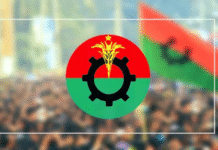Kamal Uddin Bhuiyan and Md. Jahangir Alam
Since the beginning of the 1990s, Bangladesh has adopted a number of policies to increase the inflow of foreign investment. Ratification of the 1965 Conventions on the Settlement of Investment Dispute between States and Nationals of other States (ICSID Convention), (hereinafter Washington Convention) by Bangladesh fulfills its commitment to the protection of foreign private investment in Bangladesh. The ICSID Convention entered into force for Bangladesh on April 26, 1980.
Bangladesh has also concluded a number of bilateral investment treaties (BIT) with several countries in order to promote foreign investments in its territory. At present, Bangladesh has concluded 29 BITs — 24 of which have come into force. The Foreign Private Investment (Promotion and Protection) Act 1980 is an investment protection statute in Bangladesh. Bangladesh is also a member of the 1958 Convention on the Recognition and Enforcement of Foreign Arbitral Awards (New York Convention), and the UNCITRAL Model Law on International Commercial Arbitration 1985 (amended 2006).
Bangladesh’s commitment to fair and equitable treatment for foreign investment has again been reflected in the recent decision given by International Central for Settlement of Investment Dispute (ICSID) in the arbitration proceeding initiated by Niko against Petrobangla.
The government had decided to develop marginal or abandoned gas fields in Bangladesh. Niko, a company incorporated under the laws of Barbados, proposed to carry out this development. Niko evaluated three such abandoned gas fields and concluded that two of them, the Chattak and the Feni fields, were sufficiently favourable to continue with a work plan.
With the approval of the government, Niko concluded a Joint Venture Agreement (JVA) on October 16, 2003, with the Bangladesh Petroleum & Production Company, Limited (BAPEX) to develop those gas fields. The development of the Feni field was successful and gas supplies from two wells started in November 2004. The first dispute arose between Niko and Petrobangla as to the price of gas. BAPEX and Niko (the Joint Venture Partners) began to negotiate a Gas Purchase and Sale Agreement (GPSA) with the Bangladesh Oil Gas and Mineral Corporation (Petrobangla). Niko requested a price of $2.75/MCF and the buyer (Petrobangla) offered $1.75/MCF. On December 27, 2006, a GPSA was concluded where the price was fixed at $1.75/MCF. Petrobangla made some payments but much of the gas delivered remains unpaid for. As of April 1, 2010, it owed Niko and BAPEX $27.16 million and $8.55 million respectively. Niko served several reminders to Petrobangla for payment for the gas produced by Niko.
The second dispute that arose between Niko and Petrobangla and the government was over compensation for the damages caused by two blowouts that occurred during drilling in the Chattak field on January 7, 2005, and another on June 24, 2005. The Bangladesh Environmental Lawyers’ Association (BELA) and others introduced a petition in the Supreme Court of Bangladesh, High Court Division, against the Government of Bangladesh, Petrobangla, BAPEX, Niko and others, seeking inter alia a declaration that (a) the Joint Venture Agreement (AVA) reached between Niko and BAPEX was invalid; and (b) an injunction against Petrobangla restraining payments to Niko in respect to the Feni gas field.
The court issued the injunction against Petrobangla but denied the requested declaration on May 5, 2010. In May or June 2008, Petrobangla and the government of Bangladesh commenced legal action in the Court of District Judge, Dhaka, against Niko and others, seeking compensation on the order of Tk. 746.5 crore as damages for the two blowouts (the Money Suit). These proceedings are still pending.
As a result, the following three disputes arose between Niko, Bapex and Petrobangla and the government:
Niko claimed payment (payment claim) for the outstanding invoices for the gas delivered to Petrobangla;
Petrobangla and the government claimed compensation for the damages occurred due to the blowouts;
Niko sought a declaration that it was not liable for damages in relation to the blowouts (the compensation declaration).
Niko served a Notice of Arbitration on Petrobangla on January 8, 2010. Niko decided to refer these two particular disputes (payment claim and compensation declaration) for arbitration under the ICSID Convention. The ICSID Tribunal was constituted for the arbitration of such disputes, and proceedings began on December 20, 2010. The Tribunal delivered its decision on Niko’s payment claim on September 11, 2014, based on the argument and evidence before it. The Tribunal decided that Petrobangla owed Niko $ 25,312,747 plus Tk. 139,988,337 as per Niko’s invoices for gas delivered from November 2004 to April 2010, and Petrobangla must pay simple interest on Niko’s invoices at the rate of six month LIBOR + 2% for the US Dollar amounts and at 5% for the amounts in BDT.
But the present decision is not implementable due to the pendency of injunction given by High Court Division in the BELA proceedings; prohibiting payment to Niko by Petrobangla. The order of injunction given by High Court Division reads: “This order of injunction shall remain in force till disposal of the money suit or till amicable settlement amongst the parties, whichever is earlier.”
In the Tribunal’s decision, it invited the parties to seek an amicable settlement with respect to the modalities for implementing the present decision (payment claim).
The participation in the arbitration proceedings of ICSID by Bangladesh for the settlement of investment dispute between Niko and Petrobangla should be encouraging to foreign investors. Previously, Bangladesh complied with the decisions delivered by ICSID that involved substantial monetary awards against Bangladesh.
Compliance with the decisions given by ICSID in the Niko case will demonstrate Bangladesh’s positive attitude towards its commitment for the protection of the interest of foreign investors with the terms and conditions of BITs and the ICSID convention. This will be particularly important for those interested in investing in the growing marine resource sectors and energy sectors in Bangladesh. At the same time, the decisions of the ICSID Tribunals reveal the areas in which Bangladesh can build greater investor confidence. It is hoped that there shall be an amicable settlement between the parties as to payment claim owed to Petrobangla and compensation for damages caused due to blowout as per decision of ICSID. If this is done, it will increase the inward flow of foreign direct investment in Bangladesh as it will give confidence to foreign investors. The government should put emphasis on such an important issue.
Source: The Daily Star









